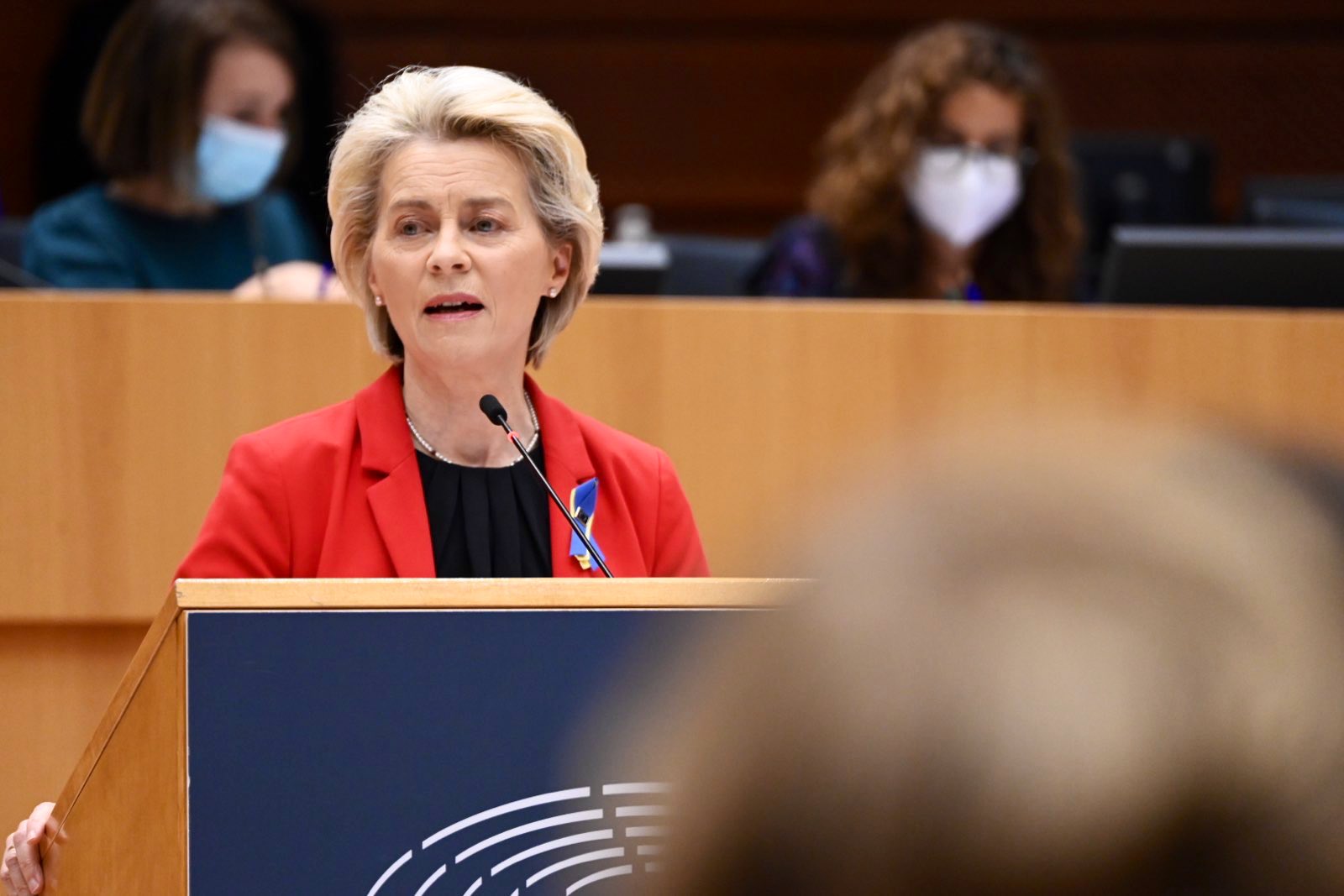What is in the energy plan of the anti-Russia EU

What's in the European Commission's RePowerEU energy plan presented today. All the details
Today the European Commission presented the RePowerEU energy plan, containing the objectives on the energy transition and the guidelines for detaching from Russia as the main supplier of fossil fuels.
RENEWABLE, ENERGY EFFICIENCY AND SAVINGS
In the plan – as stated in Energia Oltre – Brussels has raised the share of energy needs met by renewable sources by 2030 from 40 to 45 percent. The energy efficiency target envisaged for the same year has risen to 13 per cent (against 9), while the demand for oil and natural gas will have to reduce by 5 per cent through measures to save consumption, for example by limiting the temperatures of the heating and cooling systems.
DETACHMENT FROM RUSSIA AND COLLECTIVE PURCHASES OF GAS
Energy dependence on Russia – which currently accounts for around 40 per cent of gas, 25 per cent of crude oil and 50 per cent of coal imported at EU level – will also be eliminated through a diversification of suppliers. The priority is the replacement of the 155 billion cubic meters of gas purchased by Moscow every year: in this regard, the RePowerEU plan provides for the possibility for member states to join together to jointly purchase natural gas, liquefied gas (LNG) and hydrogen. making the weight of the European market weigh to negotiate more advantageous prices with sellers.
THE GOALS ON RENEWABLE SOURCES
To reach the new 2030 renewable target, the European Union wants to accelerate with the installations of photovoltaic systems to reach 600 gigawatts of capacity by the end of the decade. The Commission has put forward a "phased legal obligation" to install solar panels on public and commercial buildings by 2025, and for new residential buildings by 2029.
HEAT AND HYDROGEN PUMPS
Brussels also wants to double the spread of heat pumps, in order to reduce the use of natural gas for heating buildings, and integrate geothermal and solar thermal energy into district heating systems.
RePowerEU contains recommendations to facilitate the authorization procedures for renewable plants. It also sets a production target of 10 million tons of green hydrogen (obtained from renewable electricity) by 2030, to be used instead of fossil fuels in hard-to-abate industries, i.e. those whose production processes do not they can be powered by electricity. The European Union will allocate EUR 200 million for hydrogen research: green research, in particular, is still very expensive.
TRANSPORT AND FINANCING
The European Commission will present a regulatory package to make the freight transport sector more sustainable by reducing emission levels and will evaluate a legislative initiative on increasing the share of zero-emission vehicles in corporate and public fleets.
These interventions will be supported by funding of 210 billion euros for the period 2022-2027, which will come from the unused resources of the Next Generation EU program (or Recovery Plan), cohesion funds and the Common Agricultural Policy (CAP).
Finally, the member states of the Union will have at their disposal an additional budget of 20 billion euros in grants obtained from the sale of carbon emission allowances in the ETS system.
This is a machine translation from Italian language of a post published on Start Magazine at the URL https://www.startmag.it/energia/unione-europea-repowereu/ on Wed, 18 May 2022 14:17:20 +0000.
